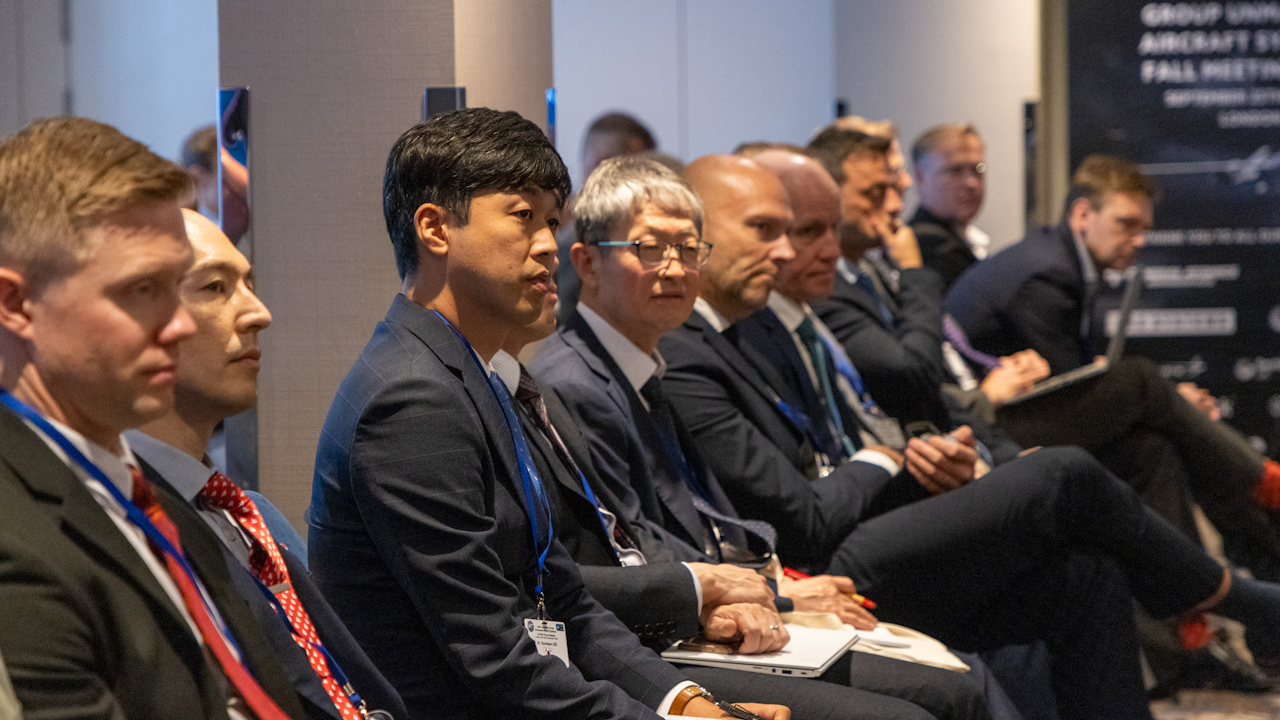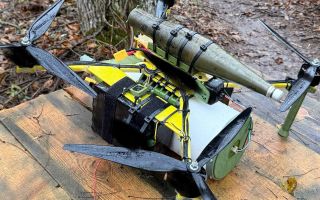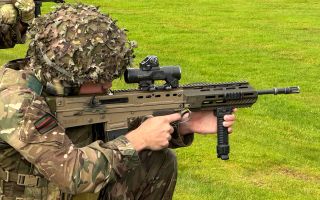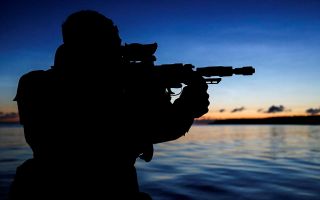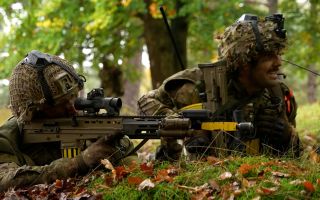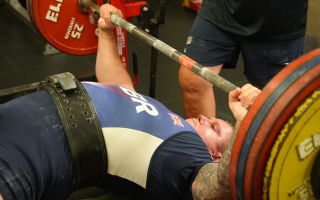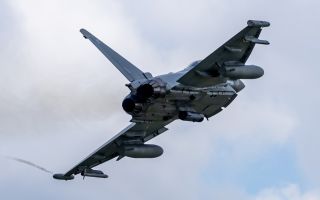World's first sense and avoid standard for drone warfare finalised at RAF event
The world's first standard in 'sense and avoid' technology - or how drones detect obstacles and avoid collisions in the air without a pilot on board - has been finalised at a meeting hosted by the Royal Air Force in London.
Sense and avoid is the phrase used to describe the ability of a remotely piloted or unmanned aerial vehicle to see, sense, detect and avoid conflicting traffic or other hazards, and take appropriate action to avoid a collision.
The Nato Joint Capability Group for Unmanned Aircraft Systems (JCGUAS) brought together partners from across the world to enhance co-operation and discuss drone warfare.
The overall aim of the group is to improve the operational effectiveness of UAS (Unmanned Aerial Systems) in Nato and coalition environments by ensuring their availability, interoperability, utility, and operational integrity.
The Nato International Staff-UAS Officer and part of the JCGUAS Leadership, Mr McKenzie said: "Our autumn meeting in London delivered an important Nato-wide standard on Sense and Avoid as well as providing a forum in which industry, government, academia, and military were brought together to enhance the development of related standards.
"Augmenting established Nato Uncrewed Aircraft Systems Airworthiness Standards, with the new Sense and Avoid standard, facilitates allied adoption of Remotely Piloted Aircraft Systems, assisting allies' ability to prove that these aircraft are airworthy, safe, reliable, and predictable."
Drone warfare has grown in significance in recent years, particularly due to its constantly changing nature as demonstrated in the Ukraine conflict.
With a regular attendance of more than 100 personnel, the JCGUAS focus is the standardisation of Uncrewed Aircraft Systems within the alliance.
The British Armed Forces has been developing its own drones for active service, which include heavy lift and missile-carrying crafts.
Wing Commander Long, head of Protector RG Mk1 International Strategy for the RAF, said: "It is important for the RAF and Nato to have forums such as this to discuss the current and future role of uncrewed aircraft systems and agree standards for their use across Nato."
